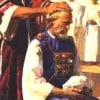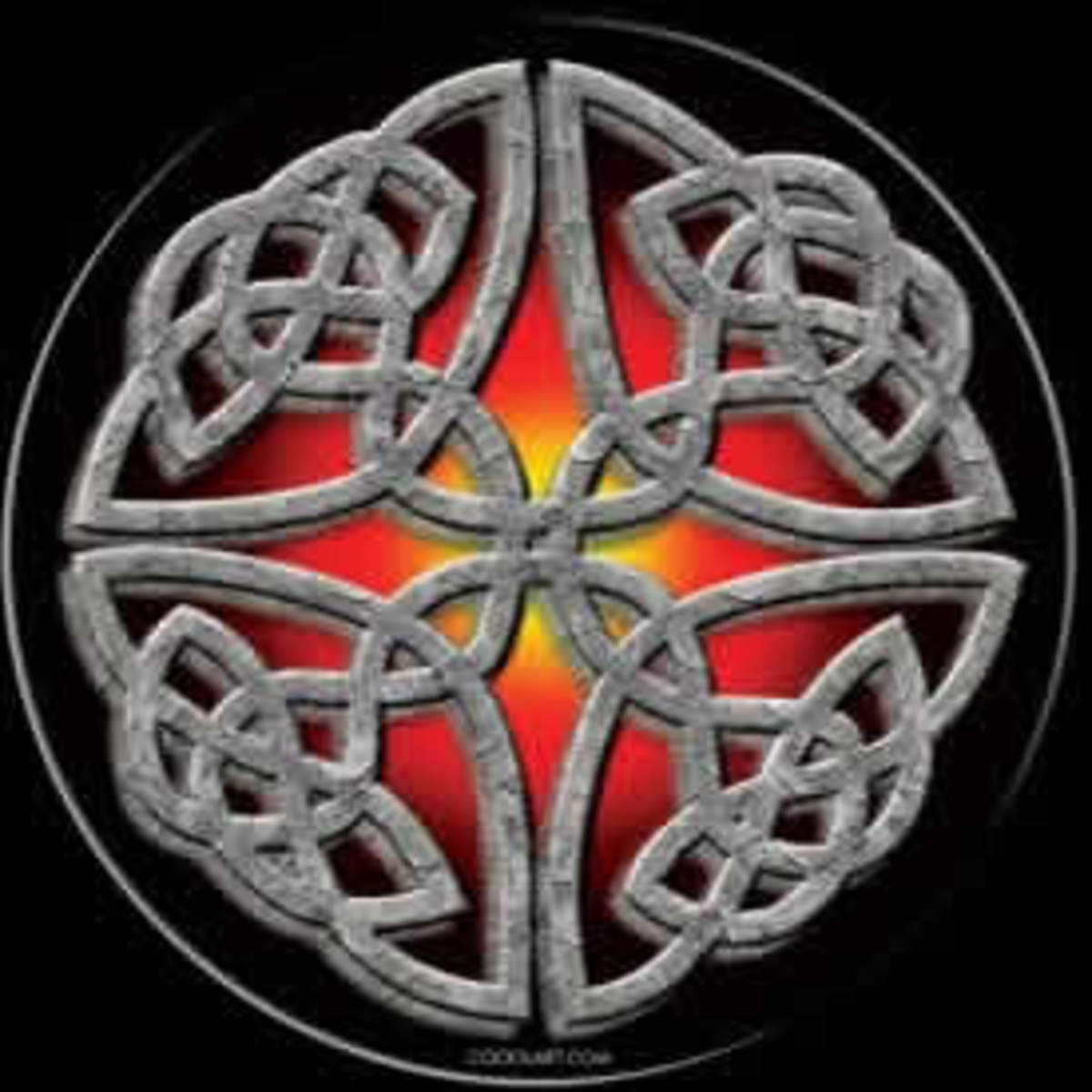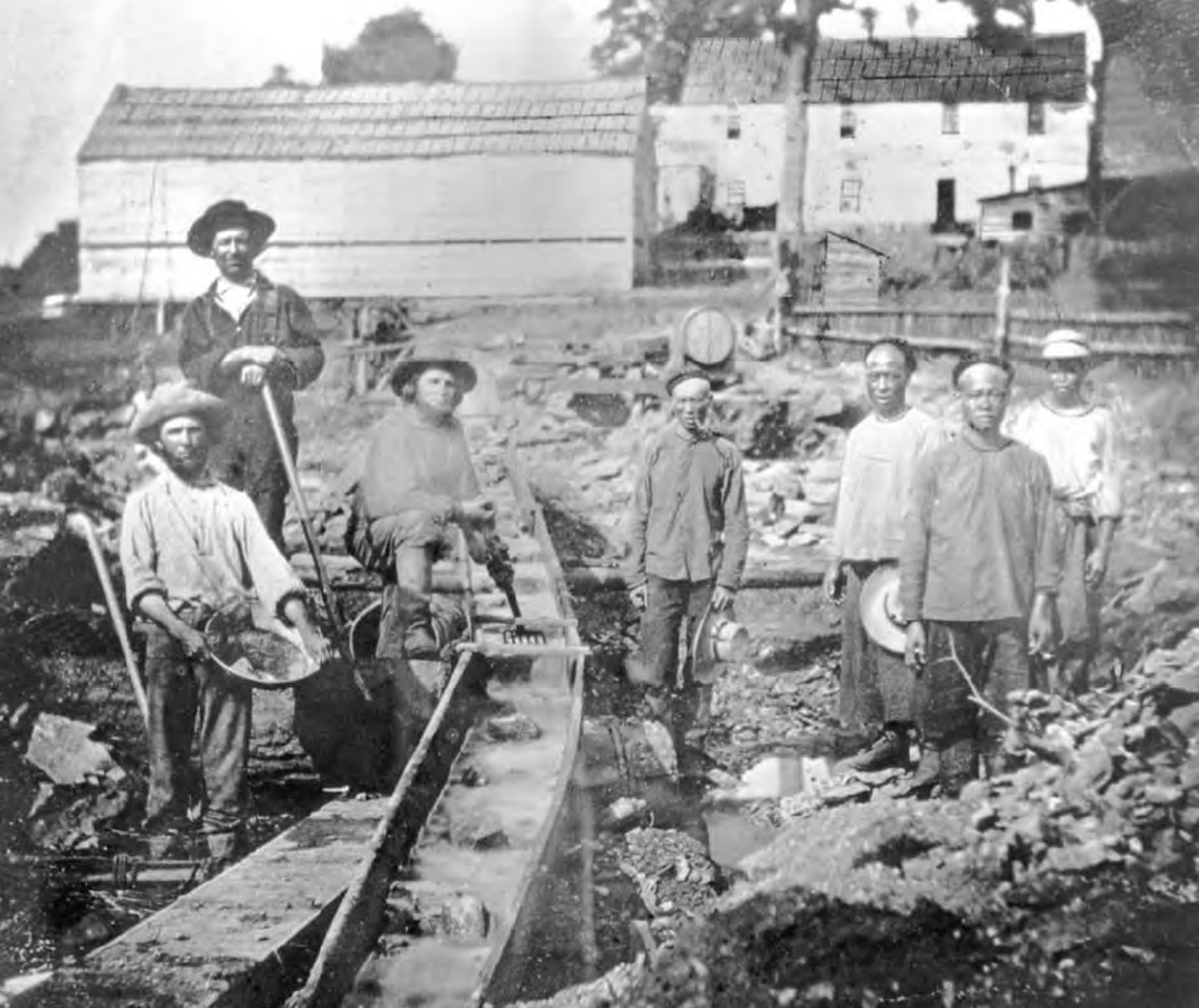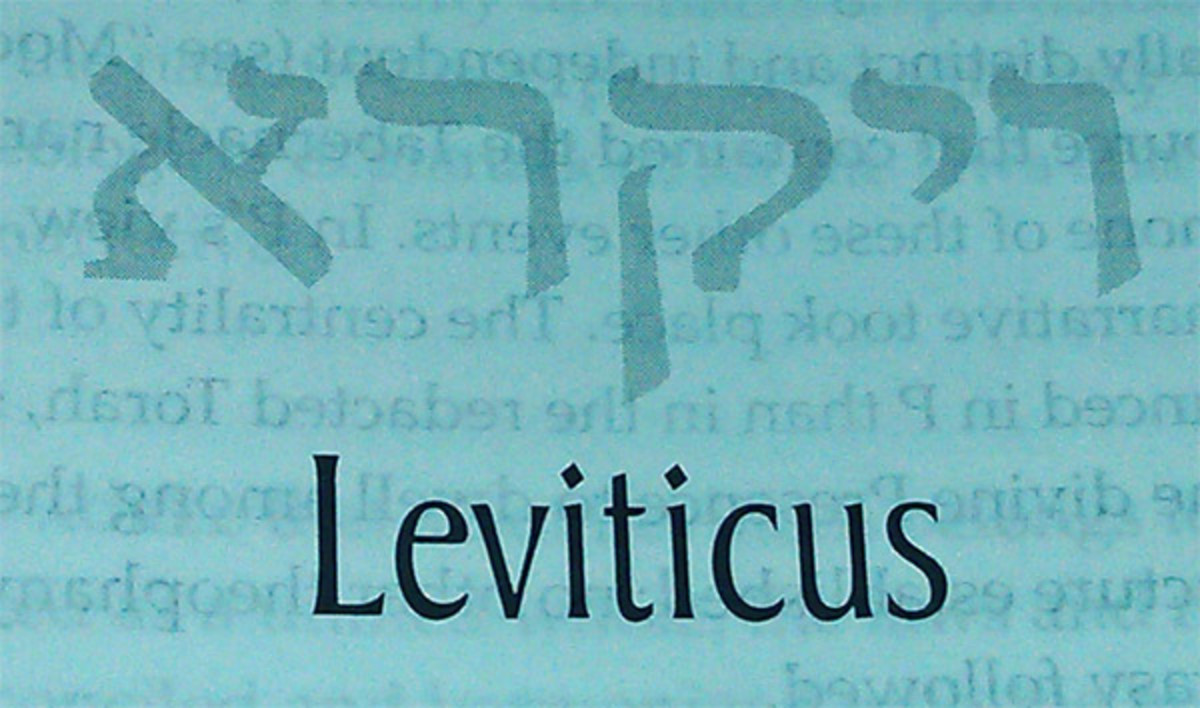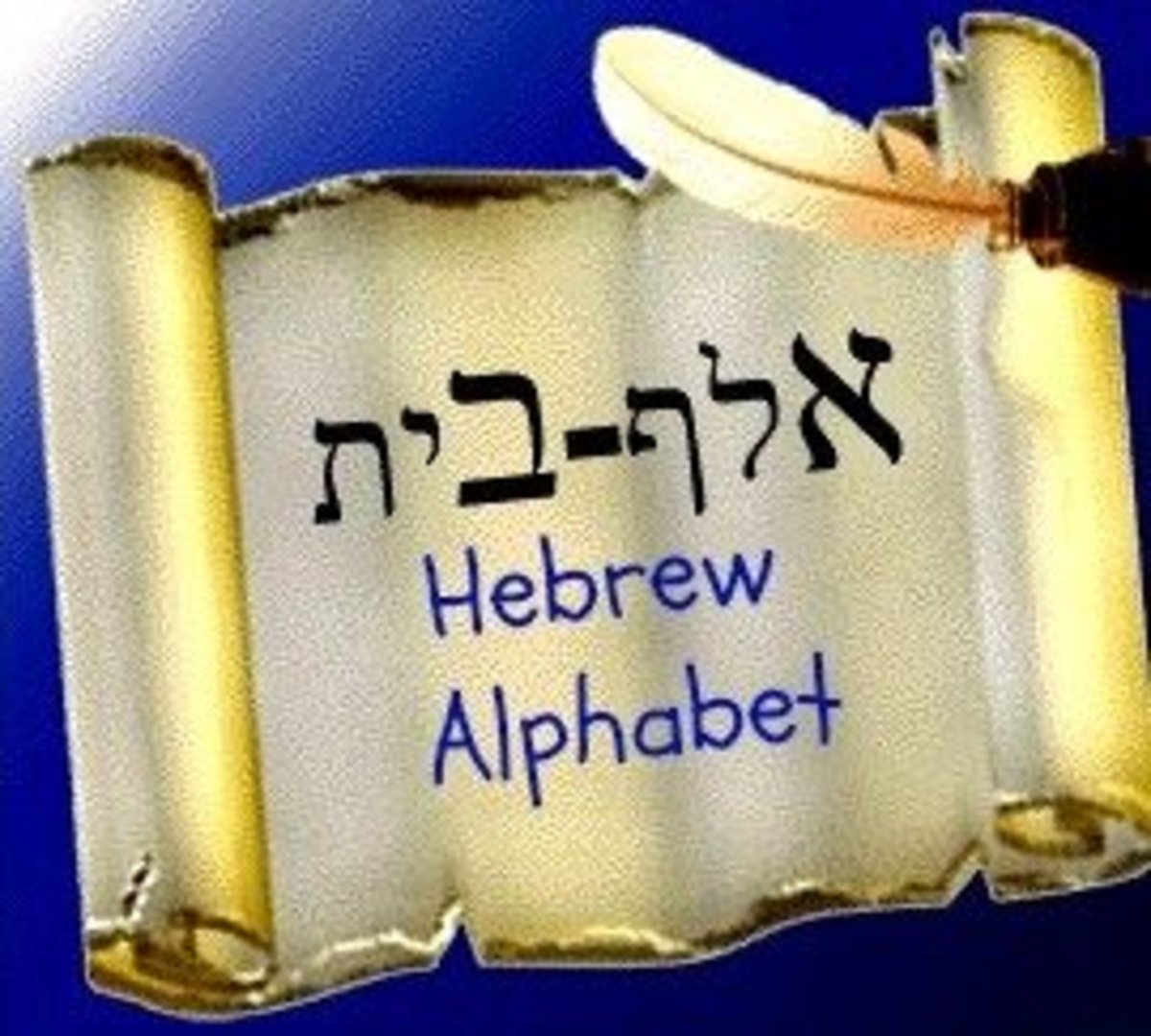Karaites In Galicia
This article is a continuation of
the www.hubpages.com/hub/Karaites-in-Romania and in some ways it is unfortunate that it was even necessary to write this article due as a result of some uninformed comments made by one
of the karaite hachams of the Crimean community. Which does not surprise me as the Crimean
community viewed itself as the centre of the Karaite universe but that view was
woefully uninformed. Being a Hacham, although wise in Tanach and halachah (law), does not necessarily make them educated in our own history. And I will admit, that part of the community comprising Galicia which extended from Poland, through Romania and into Moldova was unique as we tended to make our own history. To be honest, very
little was known outside of the Galicz Karaite community itself, as it was cut
off from both the Lithuanian and Crimean communities by the politics of
Empires but that does not permit someone that is regarded as a pillar of the community to make statements as if he knew our history, whereas it was apparent that he knew nothing at all. So let me take this opportunity, as is the lineage and role of the Kahana, to edify on this matter. Just because he had no knowledge of the Kahana in the community doesn't mean that one is entitled to make statements as if they did, just in the same way we had no knowledge of his family. But I would not use that as a premise upon which to profess to know everything there was on the matter. The Galicz being within the
boundaries of the Hapsburg Empire whereas the others were wholly under the
jurisdiction of the Russian Empire placed us beyond regular lines of communication, and thusly we developed independently. But
ignorance of the community history does not provide a licence for leaders of
other communities to denigrate what once was a shining beacon amongst Karaite
communities. Had it not been for the
Galicz community, which was granted equal standing with the Christian citizens
of the Hapsburg Empire, the similar privileges would never have been extended
to the Russian communities by their Empress who only did so after the personal
request of the Hapsburg Emperor. Even
so, the Russian communities never achieved the equal status that was bestowed
on the Galicz community. And that as we that are historians, can say clearly, "is a fact."
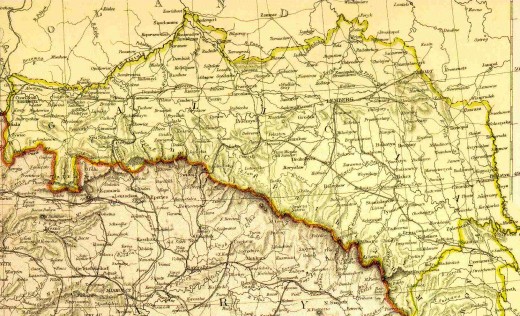
Origins of the Galicz Community
But like most flames that burst on the scene, they burn hot and fast, and such was the history of the Galicz community, rising seemingly out of nowhere and in a few hundred years vanishing just as quickly from the heydays of the eighteenth and nineteenth centuries. Had history of other communities been a requirement of Karaite study in Lithuania and Crimea, they also would have known that the practices and traditions of the Galicz community were very different from those that they experienced, primarily because the community had to develop in isolation from its sister communities. How did it begin? No one quite knows that for certain though a variety of origins were provided but none of them tested scientific or historical scrutiny. Some said they were part of the Lithuanian community that migrated independently, others a gift from the Sultan of Turkey to the Polish Duke. The fact was, that the time tables for such events don’t match with historical appearances nor the cultural differences of this community from all others. Linguistically, the evidence would suggest that the community had always been there, developing in isolation and without much interchange with either the Crimean or Lithuanian branches. Stories from the community suggested that we migrated in the tenth century from Arab lands, hence our fondness for the Arabic Language. As a distinct community presences, some scholars suggest that it began in Halicz in the 13th century. Medieval Latin sources attest to a Karaite community in Lvov, the capital of Galicia in the 15th century with the Lvov community migrated to Halicz in the sixteenth century. After the partition of Poland in 1772, there was officially 100 Karaite families living in the Hapsburg Empire, so you can appreciate whatever its origins, it began with only a few families migrating to the Galicia initially.
We Were Different
If we perform a reverse geometric extrapolation then it would suggest that it may have started with two families over a three to four hundred year period, each of those families having roughly four children. That being the case, it would fit more appropriately with a 15th century migration but the real question would be why such a small group would set off to lands unknown in the first place without the support of a much larger network. It would appear to have been more of a breakaway group than an extension of existing communities. But as a result of their migration, the community became separated both geographically and linguistically from its brethren in Volynia, Lithuania and Crimea. But this separation also resulted in its demise due to its inability to produce significant numbers over time that could continue the lines without intermarriage amongst other peoples. One of the solutions was the marriage of first cousins, a practice that stopped in my particular line with my great grandfather but which according to some of the more distant lines of the family was still practiced until recently. Whatever one might think of this close interbreeding it did seem to have one unusual beneft and that was unparalleled thinkers compared to the other Karaite communities and some of the most progressive and authoritative works flowed from Galicia. Because of its small numbers, it had to coexist with the much larger Rabbanite community and as a result it had numerous benefits that were banned in the Russian communities. The Karaite intellectuals of Galicz came into close contact with the Rabbanite scholars, often studying together, debating Torah, and this often harmonious intercourse meant that many Karaite Prayer books and theological works became published in Viennese and Budapest Jewish Printing houses. After 1918, when Galicz became part of Poland, the Karaites still thought of themselves as Austrian and this integration with the dominant society permitted further studies and universal scholarship to become infused into Karaite thought. One only has to think of the rise of my third great grandfather, Jakob Kahana Goldenthal, from total obscurity to Professor of Oriental Studies and Head of the Department of Linguistics at the University of Vienna to appreciate the benefits bestowed on the Karaite community that were not readily available to Rabbanites. But alas, this co-existence with the general Austrian population earned the Galician Karaites the animosity of their Rabbinate brethren, especially when the community was awarded the title of “exemplary Jews of the Empire.” The Karaite community of Halicz had more original documents and manuscripts than any other Karaite community in Europe. Scholars such as Zygmunt Abrahamowicz and Jozef Sulimowicz were of Galician Karaite origin.
Conclusion
There is still much to be said about the Karaites in Galicia and as is the case in most of my dissertations, this is only the beginning. I will follow up shortly with more articles on the diversity of this community as compared to the other Karaite communities. I will talk about how those in the Crimean community condemned us as heretics and accused us of pagen practices. I will disclose why they said we spoke a language that was more universal in nature, combining several languages in one. It brings to mind the first attempt at Esperanto, to create a universal language for all of Europe. This unique language of ours provided a natural ability to easily co-exist within the native European communities. For example, my third great grandfather Jacob spoke German, Russian, Arabic, Hebrew, Romanian, Italian and French fluently. But this ability was not unique in the Galicz community. I will provide descriptions of the community from those that were first hand observers, so those that do not know our history can appreciate our unique existence. It is a marvellous story of a community that arose from seemingly nowhere, reaching a pinnacle of society, only to disappear completely except in the minds of those that still remember.
